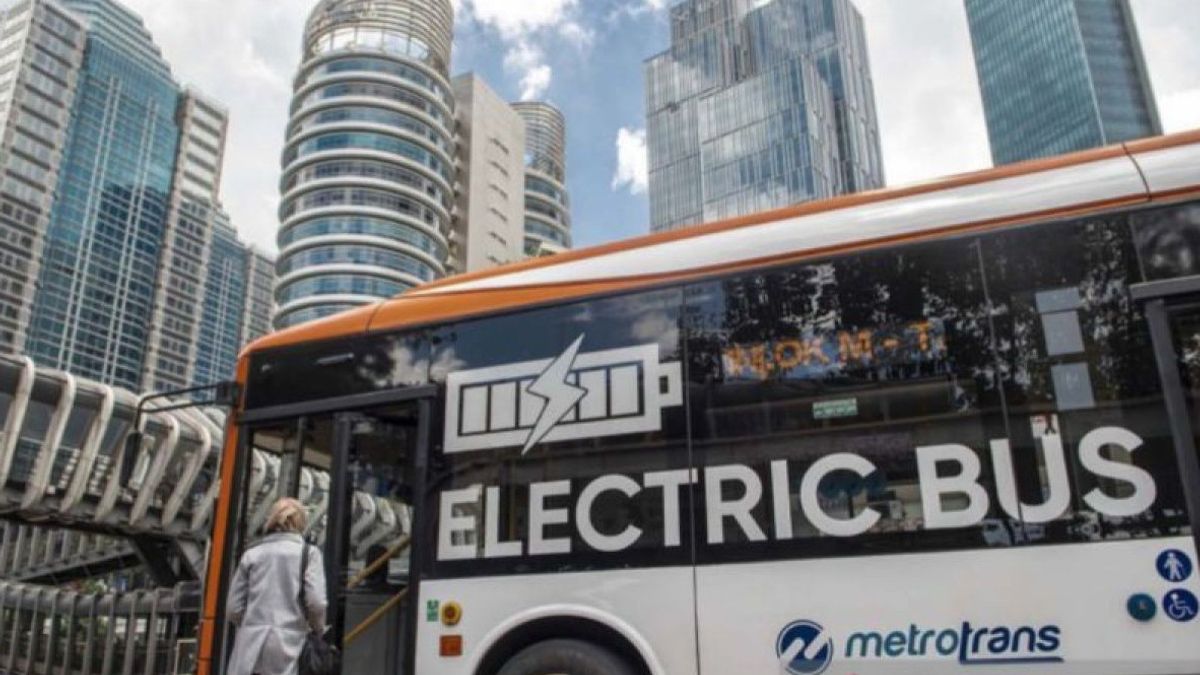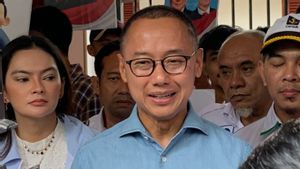JAKARTA - Acting Governor of DKI Jakarta Teguh Setyabudi admitted that he had not officially discussed the plan to abolish the Transjakarta route in corridor 1, namely Blok M-Kota.
In fact, said Teguh, he has not received any reports and studies from the DKI Jakarta Transportation Agency (Dishub) regarding the discourse on removing the Blok M-Kota route if the MRT Jakarta phase 2A is completed and operational.
"Actually, there has been no decision on that, it hasn't even reached my table yet," Teguh told reporters, Monday, December 23.
Teguh said that the discourse on removing the Transjakarta corridor 1 route was still under preliminary discussion between regional work units (SKPD) and the DKI Jakarta DPRD.
"It has not yet reached the nature of the policy issued by us. The official official memorandum does not yet exist. So, we temporarily do not comment first," he said.
Head of the DKI Jakarta Transportation Agency, Syafrin Liputo, previously explained the reasons for the discourse on removing the Transjakarta Blok M-Kota route. When MRT Jakarta phase 2A operates, the route to the Lebak Bulus-Kota service will be the same as 100 percent with the Transjakarta Blok M-Kota route.
Meanwhile, the DKI Provincial Government needs to save on APBD expenditure for transportation subsidies or public service obligation (PSO) whose value reaches trillions of rupiah per year.
"We have to make efficiency in the management of PSO funds, Subsidy funds. Where, based on the results of a study of mass public transport services which are 100 percent parallel, automatically there will be two subsidies there," Syafrin told reporters.
Syafrin said that the scenario for changing mass public transportation services was included in the Jakarta transportation master plan that had been prepared for a long time.
In the future, the main modes of transportation in Jakarta are rail-based public transportation such as MRT Jakarta, LRT Jakarta, and KRL. Thus, Transjakarta is projected to be a feeder service to the station.
"The principle of Transjakarta services will later become a feeder of rail transportation. The DKI Jakarta Provincial government's policy towards the development of mass public transportation has made rail transportation a backbone, as a backbone," explained Syafrin.
Syafrin emphasized that in the future, bus stops and buses that have been serving routes in corridor 1 will still exist. However, there will be changes in routes and stop points from serving the 1 Blok M-Kota corridor.
"For the corridor of Blok M, this city will be rerouted, but waiting after the completion of the MRT phase 2 A construction and the full operational MRT to the city, God willing, we hope that it will be operational in 2029," he said.
"So there is no one who stops being a waste because it is still being used for integration between road transportation and rail transportation," he added.
The English, Chinese, Japanese, Arabic, and French versions are automatically generated by the AI. So there may still be inaccuracies in translating, please always see Indonesian as our main language. (system supported by DigitalSiber.id)













